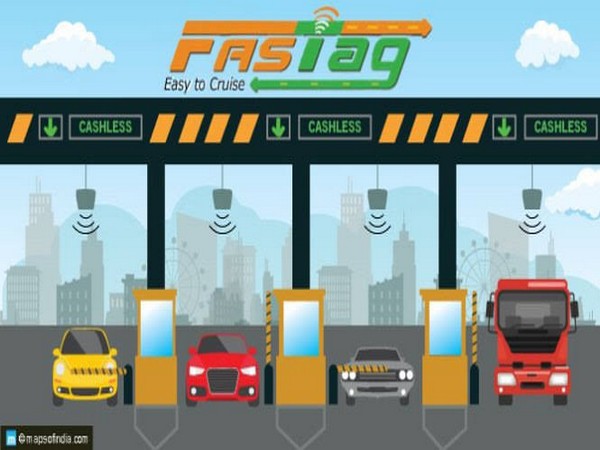NHAI Tightens Rules to Eliminate “Loose FASTags” for Smoother Tolling
This renewed focus aligns with NHAI’s larger vision of implementing seamless tolling through initiatives like the Annual Pass System and Multi-Lane Free Flow (MLFF) tolling across National Highways.

- Country:
- India
In a decisive move to enhance tolling efficiency and protect the integrity of India’s Electronic Toll Collection (ETC) system, the National Highways Authority of India (NHAI) has introduced stricter protocols for identifying and blacklisting “loose FASTags,” commonly known as “tag-in-hand.” This renewed focus aligns with NHAI’s larger vision of implementing seamless tolling through initiatives like the Annual Pass System and Multi-Lane Free Flow (MLFF) tolling across National Highways.
What Are “Loose FASTags” and Why Are They a Problem?
“Loose FASTags” refer to tags that are not affixed to the windshield of a vehicle, as required. In some cases, vehicle owners or operators intentionally keep FASTags in hand or unattached. This undermines the core automation principle of the ETC system, which relies on radio-frequency identification (RFID) scanning for automatic toll collection as a vehicle passes through the toll plaza.
Such practices have resulted in:
-
Lane congestion, due to the need for manual verification or additional scanning time.
-
False chargebacks, where users dispute toll deductions by claiming tag misuse or operational error.
-
Fraudulent use, especially in closed-loop tolling systems where the same FASTag can be misused across vehicles.
-
Operational inefficiencies, as toll collectors must intervene more frequently, slowing down traffic and causing longer waiting times.
These disruptions not only inconvenience highway users but also compromise the effectiveness of digital tolling, which has seen significant adoption nationwide.
Policy Enhancements and Enforcement Mechanism
To curtail this malpractice, NHAI has directed all Toll Collecting Agencies and Concessionaires to immediately report suspected “loose FASTags.” A dedicated email ID has been set up to facilitate timely reporting. Once such tags are reported, NHAI will promptly initiate action to blacklist or hotlist the identified FASTags, preventing further misuse.
This reporting mechanism is now mandatory for all toll operators and has been integrated into their standard operating procedures. By tightening the enforcement loop, NHAI aims to create accountability and deter motorists from manipulating FASTag placement.
Future-Facing Vision: MLFF and Annual Pass Systems
NHAI’s revised approach to managing FASTag compliance is crucial in view of upcoming innovations in highway tolling:
-
Multi-Lane Free Flow (MLFF) tolling: MLFF enables vehicles to pay tolls without stopping, as toll booths are removed entirely and charges are deducted using overhead scanners. The success of this system depends heavily on FASTag integrity and readability.
-
Annual Pass System: NHAI is also planning to introduce annual passes for frequent users, further incentivizing compliant and consistent FASTag usage.
Any compromise in FASTag placement threatens the success of these forward-looking systems, which are designed to reduce carbon emissions, save fuel, and cut travel time.
FASTag: A Near-Universal Digital Revolution
With a penetration rate exceeding 98%, FASTag has become one of India’s most successful digital payment transformations in the public infrastructure domain. The use of RFID-enabled tags for toll collection has significantly decongested toll plazas and reduced cash-based leakages. However, with great adoption comes the need for equally robust oversight mechanisms.
The challenge of “loose FASTags” is a loophole that must be decisively closed to maintain public trust and operational efficiency in the system.
By cracking down on improper FASTag usage, NHAI is laying the groundwork for a more secure, efficient, and transparent tolling framework. This new initiative reflects a proactive governance model that seeks to plug gaps before they can erode public utility systems. As India moves closer to embracing next-generation tolling mechanisms, compliance and integrity of existing systems like FASTag will remain critical pillars of success.










